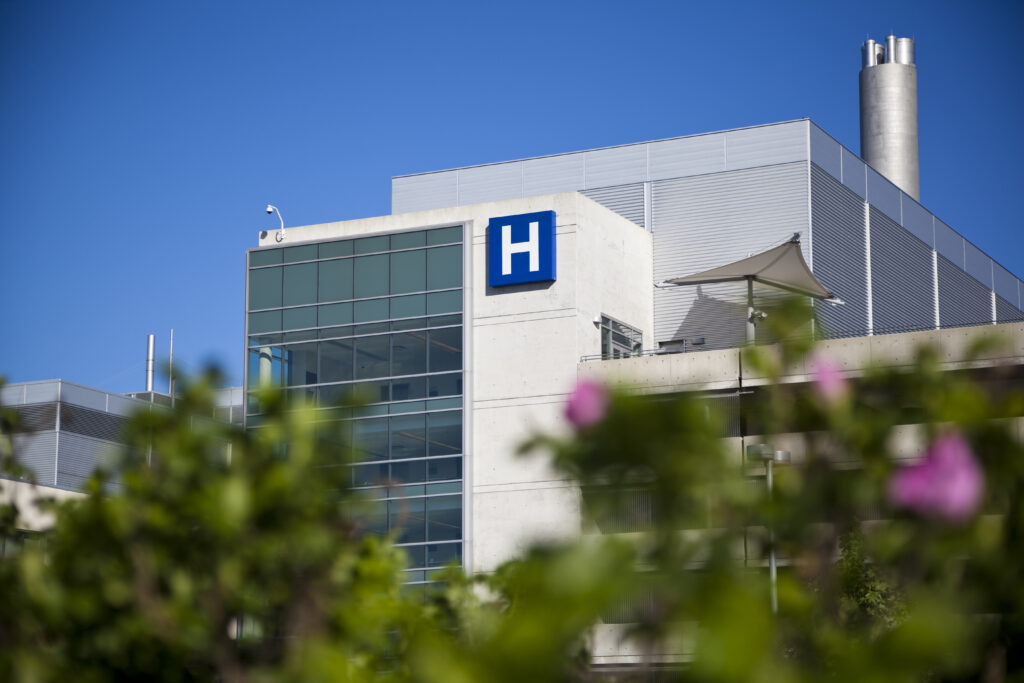Characteristics of Regulatory Submissions and Recalls of 510(k) Medical Devices
- Event Date
- Tuesday, November 29, 2022
2:00 PM - 3:30 PM Pacific - Location
- Verna and Peter Dauterive Hall (VPD), 116 Classroom
645 W Exposition Blvd, Los Angeles, CA 90089
 Professor Pinar Karaca-Mandic (she/her/hers) teaches healthcare marketplace and medical technology evaluation. She is the C. Arthur Williams Jr. Professor in Healthcare Risk Management in the Department of Finance, and the Founding Director of the Business Advancement Center for Health (BACH). Prior to that, she served as the Academic Director of the Medical Industry Leadership Institute (MILI) from 2017 to 2021. She is a Research Associate at the National Bureau of Economic Research (NBER), in Health Economics and Healthcare programs. She also serves as an Associate Editor of Forum for Health Economics and Policy, and an Editorial Board Member for the International Journal of Health Economics and Management. As a health economist, her vision is to improve "value" in healthcare. Guided by this vision, her research made contributions to the literature in four key areas to understand: 1) Value and diffusion of medical technologies; 2) Uptake of clinical guidelines and response to evidence on safety and effectiveness; 3) Access and affordability of healthcare and role of health insurance marketplace; 4) Assessing competition, frictions and social determinants of health factors, and their impact on quality and costs. These areas dynamically interact with each other, and involve and interplay of healthcare consumers, patients, physicians, healthcare organizations, medical technology producers as well as public and private third-party payers. Her research examines interactions between these components and examines the impact of regulation and market incentives. Dr. Karaca-Mandic’ has over 120 manuscripts in leading economics, medical and health policy journals including the Journal of Political Economy, Journal of Risk and Insurance, Journal of Health Economics, Health Economics, Journal of the American Medical Association (JAMA), British Medical Journal, Health Services Research and Health Affairs. Her research has been funded by the National Institutes of Health (NIH), the Agency for Healthcare Research and Quality (AHRQ), The U.S. Department of Health and Human Services, Health Resources and Services Administration, and the Robert Wood Johnson Foundation. She was the recipient of a career grant from NIH through which she has been building a research agenda focused on understanding the mechanisms underlying the diffusion of new medical technologies. She is currently the Principal Investigator on an AHRQ funded project to study uptake of clinical evidence by providers focusing on de-adoption of treatments that are shown to be ineffective or harmful. She is also the Principal Investigator on a project funded by the American Cancer Society Funded to study uptake of biosimilar drugs in the U.S. markets. Most recently, she was awarded a research grant from the Robert Wood Johnson Foundation to design and evaluate a novel financial instrument to establish sustainable funding for targeting social drivers of health such as housing and food insecurity. Dr. Karaca-Mandic's work was awarded numerous recognitions. During her leadership as the Academic Director of MILI, the institute and its programs received multiple recognitions including the 2017 MBA Roundtable Innovator Award and the 2019 Innovations That Inspire award by the Association to Advance Collegiate Schools of Business (AACSB). During 2018-2020, she co-led the design and development of a nationwide grand prize-winning mobile health technology, PRISM: Patient Reporting and Insight System from Minnesota to collect and use validated patient reported outcomes (PROs) as part of routine clinical care. PRISM received 1st prize nationally in Agency for Healthcare Research and Quality (AHRQ) Step-Up App Challenge as well as 2nd place in American Medical Informatics Association/HL7 App Contest. PRISM was successfully piloted in nine clinics in MedStar Health. In March of 2020, Dr. Karaca-Mandic co-founded the University of Minnesota COVID-19 Hospitalization Tracking Project in an effort to collect and disseminate daily data on COVID-19 hospitalizations, ICU and ventilator use across all U.S. states. The project has produced over 10 peer-reviewed publications, and over 100 brief reports. The project and Dr. Karaca-Mandic also received 7 international and national recognitions including 2021 INFORMS Information Systems Society Design Science Award, 2021 Innovations That Inspire Award from AACSB, University of Minnesota's Innovation Impact Case Award honorable mention, two Silver Stevie Awards for the "Most Valuable Non-Profit Response" and "Most Valuable Service" from the American Business Awards, and was a finalist for the NIHCM Digital Media Award. Dr. Karaca-Mandic received a 2021 Women's Health Leadership TRUST Award for Community Engagement. The project also had major media impact, providing weekly data to NPR and was featured in 160 unique major media coverages including print, radio and television– many were in New York Times, Wall Street Journal, NPR, Bloomberg, ABC, NBC, Forbes, US News World Report, Washington Post, Star Tribune. Prior to joining the Carlson School faculty, Karaca-Mandic was Associate Professor of Health Policy and Management at the University of Minnesota’s School of Public Health. She holds a Ph.D. in Economics from University of California at Berkeley, and BA degrees in economics and mathematics (high honors), and a concentration in public policy from Swarthmore College. Contact Gladys Flores if you would like to attend the seminar via Zoom, or meet with the speaker in-person.
Professor Pinar Karaca-Mandic (she/her/hers) teaches healthcare marketplace and medical technology evaluation. She is the C. Arthur Williams Jr. Professor in Healthcare Risk Management in the Department of Finance, and the Founding Director of the Business Advancement Center for Health (BACH). Prior to that, she served as the Academic Director of the Medical Industry Leadership Institute (MILI) from 2017 to 2021. She is a Research Associate at the National Bureau of Economic Research (NBER), in Health Economics and Healthcare programs. She also serves as an Associate Editor of Forum for Health Economics and Policy, and an Editorial Board Member for the International Journal of Health Economics and Management. As a health economist, her vision is to improve "value" in healthcare. Guided by this vision, her research made contributions to the literature in four key areas to understand: 1) Value and diffusion of medical technologies; 2) Uptake of clinical guidelines and response to evidence on safety and effectiveness; 3) Access and affordability of healthcare and role of health insurance marketplace; 4) Assessing competition, frictions and social determinants of health factors, and their impact on quality and costs. These areas dynamically interact with each other, and involve and interplay of healthcare consumers, patients, physicians, healthcare organizations, medical technology producers as well as public and private third-party payers. Her research examines interactions between these components and examines the impact of regulation and market incentives. Dr. Karaca-Mandic’ has over 120 manuscripts in leading economics, medical and health policy journals including the Journal of Political Economy, Journal of Risk and Insurance, Journal of Health Economics, Health Economics, Journal of the American Medical Association (JAMA), British Medical Journal, Health Services Research and Health Affairs. Her research has been funded by the National Institutes of Health (NIH), the Agency for Healthcare Research and Quality (AHRQ), The U.S. Department of Health and Human Services, Health Resources and Services Administration, and the Robert Wood Johnson Foundation. She was the recipient of a career grant from NIH through which she has been building a research agenda focused on understanding the mechanisms underlying the diffusion of new medical technologies. She is currently the Principal Investigator on an AHRQ funded project to study uptake of clinical evidence by providers focusing on de-adoption of treatments that are shown to be ineffective or harmful. She is also the Principal Investigator on a project funded by the American Cancer Society Funded to study uptake of biosimilar drugs in the U.S. markets. Most recently, she was awarded a research grant from the Robert Wood Johnson Foundation to design and evaluate a novel financial instrument to establish sustainable funding for targeting social drivers of health such as housing and food insecurity. Dr. Karaca-Mandic's work was awarded numerous recognitions. During her leadership as the Academic Director of MILI, the institute and its programs received multiple recognitions including the 2017 MBA Roundtable Innovator Award and the 2019 Innovations That Inspire award by the Association to Advance Collegiate Schools of Business (AACSB). During 2018-2020, she co-led the design and development of a nationwide grand prize-winning mobile health technology, PRISM: Patient Reporting and Insight System from Minnesota to collect and use validated patient reported outcomes (PROs) as part of routine clinical care. PRISM received 1st prize nationally in Agency for Healthcare Research and Quality (AHRQ) Step-Up App Challenge as well as 2nd place in American Medical Informatics Association/HL7 App Contest. PRISM was successfully piloted in nine clinics in MedStar Health. In March of 2020, Dr. Karaca-Mandic co-founded the University of Minnesota COVID-19 Hospitalization Tracking Project in an effort to collect and disseminate daily data on COVID-19 hospitalizations, ICU and ventilator use across all U.S. states. The project has produced over 10 peer-reviewed publications, and over 100 brief reports. The project and Dr. Karaca-Mandic also received 7 international and national recognitions including 2021 INFORMS Information Systems Society Design Science Award, 2021 Innovations That Inspire Award from AACSB, University of Minnesota's Innovation Impact Case Award honorable mention, two Silver Stevie Awards for the "Most Valuable Non-Profit Response" and "Most Valuable Service" from the American Business Awards, and was a finalist for the NIHCM Digital Media Award. Dr. Karaca-Mandic received a 2021 Women's Health Leadership TRUST Award for Community Engagement. The project also had major media impact, providing weekly data to NPR and was featured in 160 unique major media coverages including print, radio and television– many were in New York Times, Wall Street Journal, NPR, Bloomberg, ABC, NBC, Forbes, US News World Report, Washington Post, Star Tribune. Prior to joining the Carlson School faculty, Karaca-Mandic was Associate Professor of Health Policy and Management at the University of Minnesota’s School of Public Health. She holds a Ph.D. in Economics from University of California at Berkeley, and BA degrees in economics and mathematics (high honors), and a concentration in public policy from Swarthmore College. Contact Gladys Flores if you would like to attend the seminar via Zoom, or meet with the speaker in-person.
